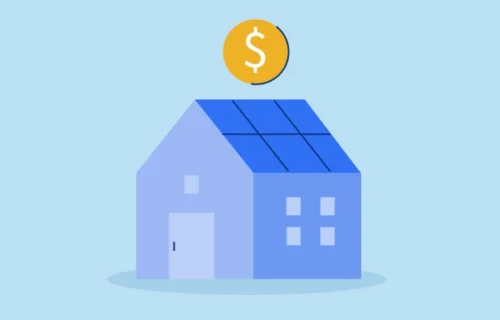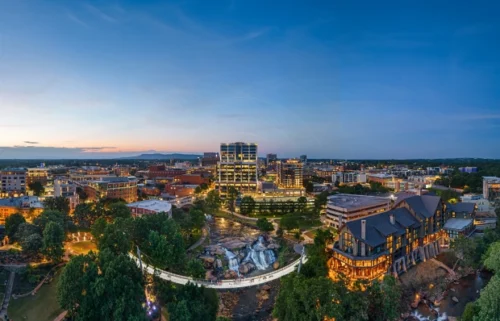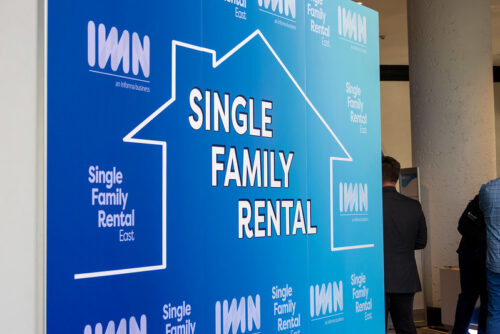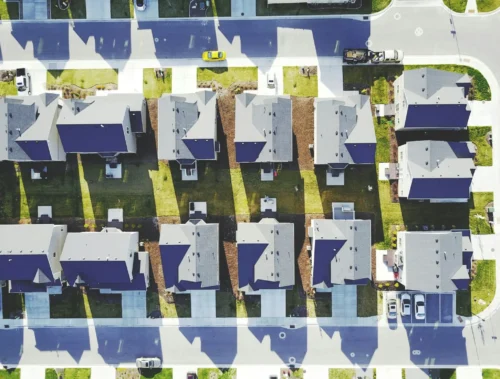
Connect with a Lima One expert today!
If you’d like to know more about this topic or see how it applies to your project, let’s talk.
Rental Properties in Phoenix Are in High Demand
Why the Phoenix Rental Market is Attracting Investors
In the past year, the Phoenix metro area’s housing market has been as hot as its climate, and most areas of the city’s housing market have seen record-breaking numbers. The Phoenix housing market is the second-hottest in the country, according to a new Zillow survey.
Along with the already consistent number of out-of-state buyers and snowbirds seeking warmth, Phoenix’s relatively low prices have been attracting even more new residents from more expensive markets. Phoenix provides more affordable living options compared to nearby metros in California and Nevada, offering feasible options for millennials looking to take advantage of low mortgage rates to buy their first home.
Phoenix Rental Market Overview
The Phoenix rental market is experiencing price increases that are growing faster than almost any other large metro. The average monthly rent has skyrocketed from $1,231 to $1,346 – an increase of 9.3% YOY. The city's rental market already has a high occupancy rate, but in the past year, that rate has increased slightly from 95.2% to 95.9%. These increases outpace most other metros, which have seen both of these stats stay flat through the economic uncertainty of the past 15 months.
Like the rest of the country, Phoenix has a major housing supply problem. Single-family and multifamily new construction permits have increased in recent months, which will hopefully help alleviate the housing supply issue. New construction starts are not only adding houses for rent in Phoenix, but they also give investors the opportunity to add to their rental portfolio.
Overall, Phoenix real estate investors have a promising market to work with. Foreclosure and mortgage delinquencies are lower than the national average, and consumer sentiment has been on the rise for a while. When you throw in low-interest rates and a decreased home price-to-income ratio, investors have a pretty solid foundation to build on.
Phoenix Rental Market Stats:
- Population (metro area): 4,584,400
- Occupancy rate: 95.9%
- Percentage of renters: 36% (indicates a market that skews toward renting over owning)
- Average monthly rent in Phoenix: $1,346
- Average monthly rent in Arizona: $1,242
- Average monthly rent in the U.S.: $1,468 (2020)
- The Phoenix Multifamily Market is Hot
Phoenix has one of the hottest multifamily rental markets in the country. The latest CommercialSearch study shows that Phoenix has the sixth hottest U.S. market for multifamily sales over the last decade. Since 2009, Phoenix has registered more than $42 billion in multifamily sales with 1,711 deals across the metro area totaling 385,717 units, according to the study. In 2020 alone, Phoenix closed 125 multifamily deals, placing just behind Dallas-Fort Worth, which claimed the No. 1 spot.
Nationally, the current median home sales price is $313,200 – a 58% increase since 2009. As real estate prices rose over the past decade, homeownership rates slowly declined. In 2016, the national homeownership rate plummeted to 62.9% - the lowest since 1965. The homeownership rate neared its peak before the housing crisis in 2008, reaching 67.9%. The increase was driven by cheap borrowing costs and risky lending practices. Comparatively, the pandemic has caused rates to fall back to 65.8% as of Q4 2020.
In the same timeframe, growth in national rental rates has risen 37% to $1,462. For multifamily investors, these increases pale in comparison to property prices. Yardi Matrix’s National Multifamily Report ranked Phoenix third for year-over-year rent growth. Nationally, Q1 2021 was one of the strongest first quarters the multifamily real estate industry has had in a few years, with rents increasing 0.8% from the previous quarter. Rent in Phoenix’s multifamily rental market also increased 6.9% YOY.
The increase is a positive indicator for the multifamily and rental real estate industry and the economy at large, analysts wrote in the March report.
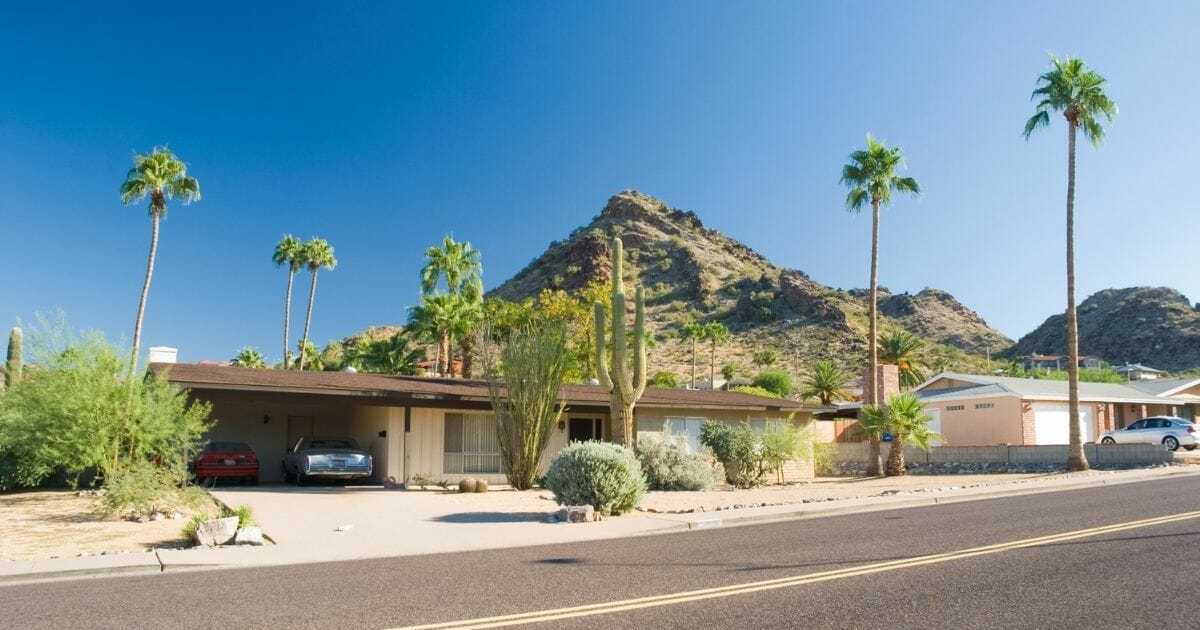
A Hidden Opportunity for Investors
The unprecedented home and rental price growth have been outpacing what many residents can keep up with. Many residents are being priced out of buying and renting homes due to the current housing market.
The average monthly rent for a 2-bedroom apartment in Maricopa County has increased from $908 in 2015 to $1,281 in 2021, according to the U.S. Census Bureau. The increase in rent is a cause for concern because median household incomes aren’t keeping up with rent and housing costs. Since 2015, Phoenix residents have seen a 13% increase in median household income, while average monthly rent prices have increased 40% and home prices have increased 60%.
Mark Stapp, director of the real estate program at the Arizona State University WP Carey School of Business, suggested that cities use vacant land to build homes and apartments specifically for workforce housing and builders should build more affordable housing for the city’s residents. This may be an area where build-to-rent investors can focus and profit in the Phoenix area.
Why the Phoenix Real Estate Market is Growing
A number of exciting job opportunities are coming to Phoenix, which will inevitably add growth to the city’s real estate market.
Since late 2020, tech companies Taiwan Semiconductor Manufacturing Co., Korean-based Samsung, and American computer chip giant Intel have announced plans to relocate to Phoenix. Taiwan Semiconductor Manufacturing Co. announced it would build a $12 billion advanced microchip factory in Phoenix as part of an American initiative to help supply national economic and national security teams to the U.S. The company’s entire supply chain will likely follow in moving to Phoenix.
Samsung announced that two Phoenix sites were among four national finalists for a $17 billion chip factory to produce advanced logic devices. If Samsung chooses Phoenix for its factory, it would likely result in their entire supply chain of approximately 100 companies following along, too. Chandler-based Intel announced it will spend $20 billion to build two additional factories in Arizona, the largest private-sector investment in the state’s history.
While these announcements are independent of one another, they show that critical development and manufacturing is reawakening in the United States. The talent at Arizona State University’s Fulton School of Engineering, the largest engineering college in the country, as well as yeoman’s work from local economic development leaders, are just two reasons why Phoenix is so attractive to these companies.
Berlin-based HelloFresh, the largest meal-kit provider in the United States and worldwide, recently announced plans to open a distribution center in Phoenix. A 440,000 square-foot facility in Phoenix will become the company’s largest shipping and fulfillment center. The newly built Phoenix facility will begin operations in Q4 2021 and could provide as many as 1,200 new jobs over time. By bringing more high-paying jobs to the region, these companies are providing an outstanding pool of potential tenants for real estate investors, providing confidence that scaling portfolios now will continue to lead to profit in the coming years.
Arizona Housing Market Predictions for 2021
The Phoenix housing market looks extremely strong for 2021. A recent Realtor.com forecast predicts home sales will jump 11.4% over 2020’s levels – which is higher than the national average.
Beautiful weather, popular restaurants, renowned higher learning institutions, a robust job market, a reasonable cost of living, and now the ability to work from home, is drawing people of all ages to Phoenix. For investors interested in buying or selling real estate investment property in Phoenix, AZ there are a few housing market predictions to watch over the remainder of 2021.
Phoenix Housing Market Predictions for 2021
- Expect mortgage rates to stay low. The 30-year fixed-rate is at an all-time low of 2.75%, and refinancing rates are hovering around 2.45%.
- Inventory will remain low. Would-be homebuyers are attracted by the low rates, but high demand and sparse inventory have increased home prices.
- Millennials will continue to be the strongest group of first-time homebuyers.
- Buyers are paying larger down payments to avoid paying for PMI. The larger down payment is also a great way to lower the mortgage payments and possibly interest rates.
What Does This Mean for Investors?
If you're investing in Arizona or looking for a new market for your portfolio, Phoenix should be on your radar. The city itself boasts a population of over 1.6 million, making it the fifth-most populated place in the country.
Altogether, the Phoenix metropolitan area -- which includes neighboring cities like Mesa, Scottsdale, Glendale, and Tempe -- encompasses a whopping 15,000 square miles. Throw in the many universities, Fortune 500 companies, and major foothold industries like healthcare, retail, and tech in the city. Nationally, Phoenix ranks high in development opportunities, seeing an 8% increase in new construction permits in 2021. Single-family new construction homes are in high demand in Phoenix, with permits for single-family new construction increasing 29% YOY. That same demand creates an opportunity for real estate investors to venture into the build to rent market, which is on fire nationally.
Phoenix’s single-family market carries a lot of opportunities for real estate investors to be successful, and it continues to be one of the best types of investment property in Phoenix, AZ. Fix and flip profit dollars have been growing substantially in Phoenix, showing these types of investments can be very lucrative for investors. Fix and flip investors made an average gross profit of $59,000. Overall, the average gross profit on flips has increased by $23,700 YOY.
Phoenix has a higher percentage of flips than most markets, and those flips are taking less time to complete than peer metros. Flips accounted for 8% of all Phoenix-area sales in Q4 2020, which is higher than the national average of 4.8%. A typical flip in Phoenix took 141 days. The national average is 176 days—showing the benefit of Phoenix’s climate in finishing flips (and cashing checks) fast. Phoenix is a great rental market for investors, and there are plenty of opportunities for investors to find success in multiple facets of the city’s real estate market. There's plenty of room for optimism in the Phoenix market, as the city’s major economic indicators and real estate trends demonstrate.
While inventory might be harder to find, investors with strong real estate investment strategies can still profit. It’s now more important than ever to have a lender capable of helping you:
- Secure a loan with the best price and maximum leverage for your next rental investment
- Close properties quickly and certainly
- Run your construction or rehab projects smoothly
Lima One Capital offers that and much more for real estate investors. We are experts in financing rental properties and portfolios, multifamily real estate investment opportunities, and new home construction for builders on urban in-fill, spec homes, model homes, and teardown/rebuild projects. Our team of experienced professionals will help guide you through getting a loan for your next investment.
If you’re interested in obtaining a loan for investment property in Phoenix, AZ, call us to learn more. Get started today and scale your rental property portfolio with Lima One, the nation’s premier lender for real estate investors.
Subscribe for More Insights
Get the latest industry news & Lima One updates.



